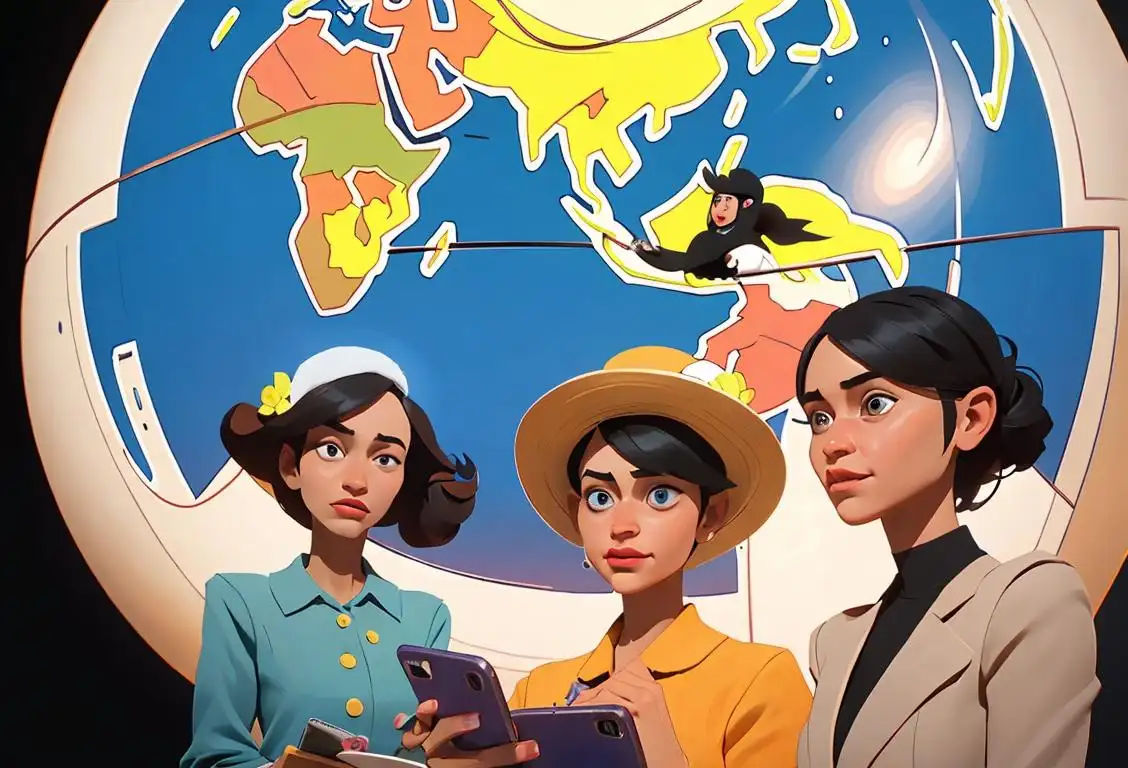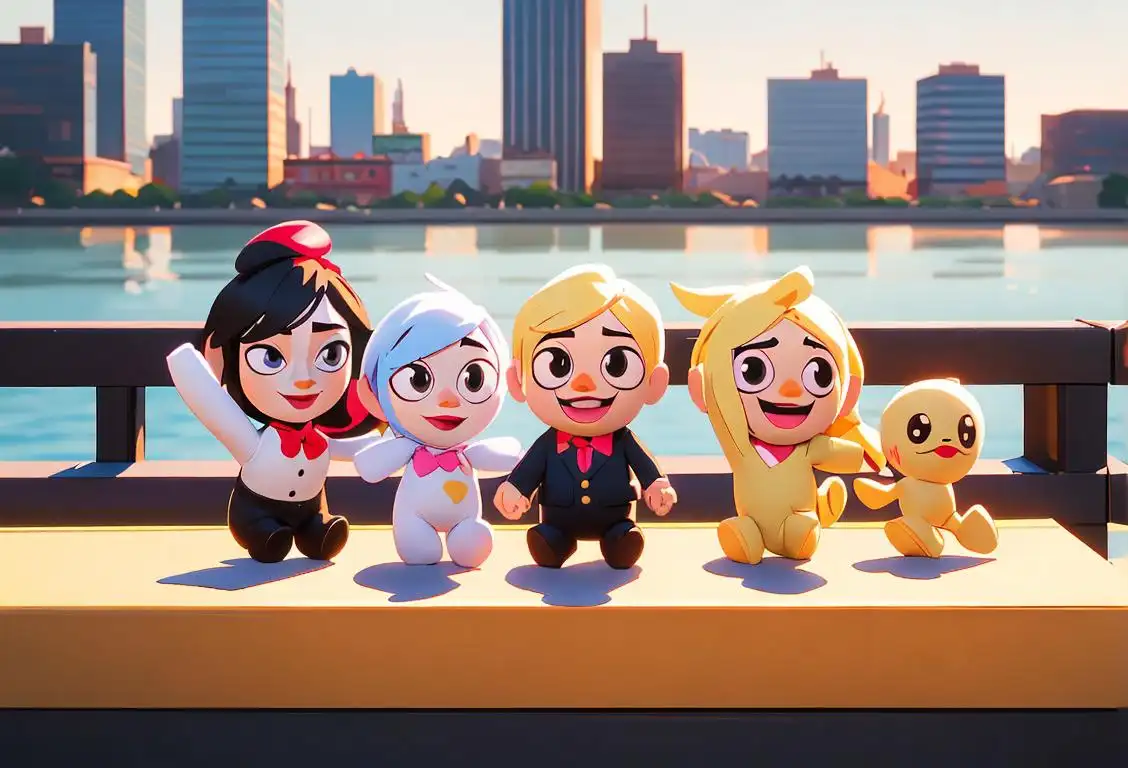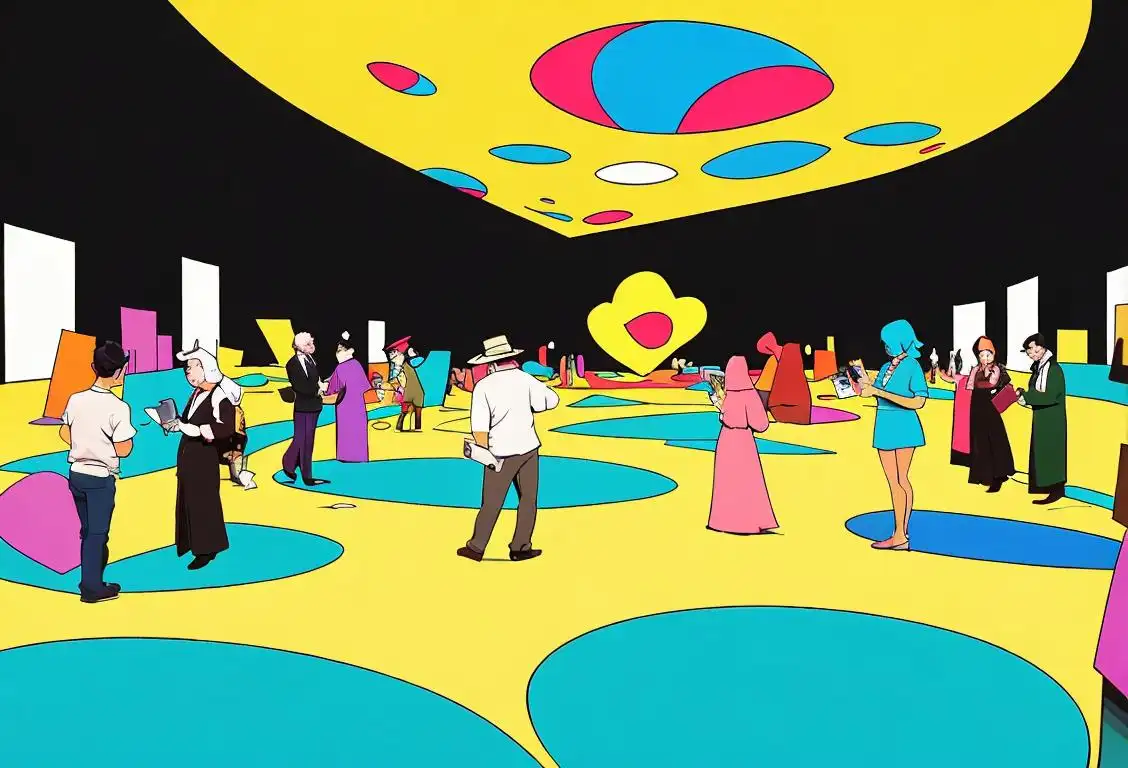National Internet Day

Hey there, internet enthusiasts! Get ready to celebrate National Internet Day, the day that brings together millions of people from around the world to celebrate all things online. Whether you're obsessed with cat videos, addicted to social media, or simply can't get enough of the latest memes, this is the day to embrace the glorious world wide web. So, put on your virtual party hats and let's dive into the fascinating history and wonders of this amazing invention!
When is Internet Day?
It's national internet day on the 29th October.
The Birth of the Internet
Before we delve into the wonders of the internet, let's have a quick history lesson. Did you know that the internet was born out of a project called ARPANET in the late 1960s? Its mission? To facilitate communication between various research institutions. Little did they know that their creation would one day connect billions of people.
Connecting the World
Fast forward a few decades to the 1990s, when the internet truly started to take off. As more and more households got connected, the world suddenly became a smaller place. People could chat with friends across the globe, share information at the click of a button, and discover whole new worlds through websites and search engines.
The Rise of Social Media
No discussion about the internet is complete without mentioning the rise of social media. Remember when Facebook was just a way to connect with college friends? Now, it's a global platform where people share their lives, connect with loved ones, and yes, watch an endless stream of cat videos. And let's not forget about Twitter, Instagram, Snapchat, and the countless other platforms that have become an integral part of our lives.
Online Shopping and Entertainment
Thanks to the internet, shopping has never been easier. From groceries to shoes to that random gadget you didn't know you needed, you can find it all with just a few clicks. And when it comes to entertainment, the internet has revolutionized the way we consume media. Streaming services like Netflix and Spotify have made it possible to watch movies, listen to music, and binge-watch entire TV series without leaving the comfort of your couch.
The Future of the Internet
The internet continues to evolve at a breathtaking pace. With the advent of technologies like artificial intelligence, virtual reality, and blockchain, who knows what the future holds? One thing's for sure, though - the internet will always be a vital part of our lives.
History behind the term 'Internet'
1969
The Birth of ARPANET
In 1969, the precursor to the modern internet was formed. The Advanced Research Projects Agency Network (ARPANET) was created by the United States Department of Defense. It connected four computers at research institutions, allowing them to share information and resources for the first time.
1971
Email Takes Flight
In 1971, Ray Tomlinson, an American computer programmer, was the first to successfully send an email across a network. He used the @ symbol to separate the user name from the destination computer, an innovation that remains a vital part of email addressing to this day.
1974
Introduction of TCP/IP Protocol
Vinton Cerf and Robert Kahn developed the Transmission Control Protocol/Internet Protocol (TCP/IP) in 1974. TCP/IP allowed different networks to connect and communicate with each other, forming the foundation of the internet as we know it today.
1983
Deployment of TCP/IP
In 1983, the use of TCP/IP as the standard protocol on ARPANET was officially implemented, replacing the previous NCP protocol. This marked a significant milestone in the widespread adoption of a universal network protocol and was a crucial step towards the global expansion of the internet.
1989
Tim Berners-Lee Invents the World Wide Web
Tim Berners-Lee, a British computer scientist, invented the World Wide Web (WWW) in 1989. He developed the HTML language, HTTP protocol, and the first web browser, making it easier for people to access information and navigate websites. The World Wide Web revolutionized the internet, making it more accessible and user-friendly.
1991
Commercialization and Rise of the Internet
With the lifting of restrictions on commercial use of the internet in 1991, the floodgates for its rapid expansion were opened. Internet Service Providers (ISPs) proliferated, allowing individuals and businesses to connect to the internet for various purposes. The introduction of the web browser Mosaic, later known as Netscape Navigator, in the same year further accelerated the growth of the internet.
1994
Emergence of Online Shopping
In 1994, the first secure online transaction took place, paving the way for the rise of e-commerce. Dan Kohn and Phil Brandenberger sold a copy of Sting's album 'Ten Summoner's Tales' to a friend using a web browser, marking the birth of online shopping. This event sparked a revolution in retail and forever changed the way people buy and sell products.
2007
Mobile Internet Revolution
The release of the first iPhone in 2007 revolutionized the internet once again. With the widespread adoption of smartphones, accessing the internet became increasingly mobile and convenient. This marked a significant shift in how people interacted with the online world, leading to the development of countless mobile applications and services.
2010
The Rise of Social Media
In 2010, social media platforms such as Facebook, Twitter, and Instagram gained massive popularity, transforming the way people communicate and share information online. The ability to connect with others globally and share content in real-time propelled social media to become an integral part of internet culture.
2020
The Internet in the Digital Age
As of 2020, the internet has evolved into an unprecedented source of information, entertainment, and communication. With over four billion users worldwide, it has revolutionized industries, empowered individuals, and reshaped society as a whole. From streaming services to cloud computing, the internet continues to shape our lives in ways unimaginable just a few decades ago.
Did you know?
Did you know that the first ever email was sent over the internet in 1971 by Ray Tomlinson? It was a pretty simple message that said 'QWERTYUIOP.' Little did he know that his message would go down in history as the first electronic mail ever sent!Tagged
fun communication technologyFirst identified
29th October 2015Most mentioned on
29th October 2019Total mentions
263Other days
Please Text Me Back Day
World Emoji Day
Internet Day
Emoji Game Day
Cell Day
Text Day
Gif Day
Stem Day
Stockpile Website A Day
Telephone Day








